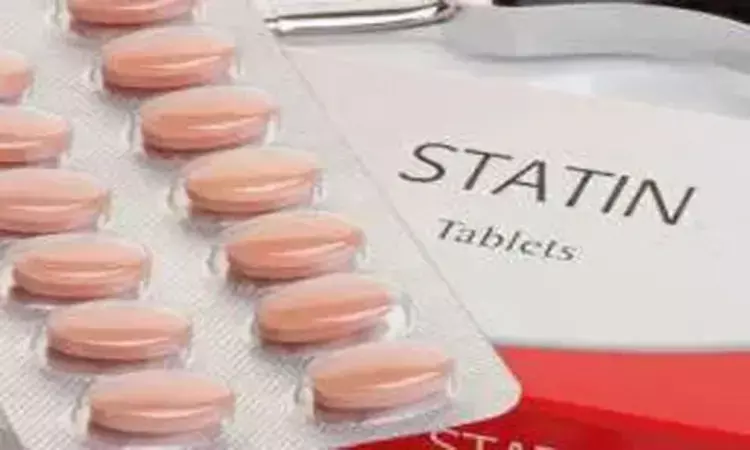- Home
- Medical news & Guidelines
- Anesthesiology
- Cardiology and CTVS
- Critical Care
- Dentistry
- Dermatology
- Diabetes and Endocrinology
- ENT
- Gastroenterology
- Medicine
- Nephrology
- Neurology
- Obstretics-Gynaecology
- Oncology
- Ophthalmology
- Orthopaedics
- Pediatrics-Neonatology
- Psychiatry
- Pulmonology
- Radiology
- Surgery
- Urology
- Laboratory Medicine
- Diet
- Nursing
- Paramedical
- Physiotherapy
- Health news
- Fact Check
- Bone Health Fact Check
- Brain Health Fact Check
- Cancer Related Fact Check
- Child Care Fact Check
- Dental and oral health fact check
- Diabetes and metabolic health fact check
- Diet and Nutrition Fact Check
- Eye and ENT Care Fact Check
- Fitness fact check
- Gut health fact check
- Heart health fact check
- Kidney health fact check
- Medical education fact check
- Men's health fact check
- Respiratory fact check
- Skin and hair care fact check
- Vaccine and Immunization fact check
- Women's health fact check
- AYUSH
- State News
- Andaman and Nicobar Islands
- Andhra Pradesh
- Arunachal Pradesh
- Assam
- Bihar
- Chandigarh
- Chattisgarh
- Dadra and Nagar Haveli
- Daman and Diu
- Delhi
- Goa
- Gujarat
- Haryana
- Himachal Pradesh
- Jammu & Kashmir
- Jharkhand
- Karnataka
- Kerala
- Ladakh
- Lakshadweep
- Madhya Pradesh
- Maharashtra
- Manipur
- Meghalaya
- Mizoram
- Nagaland
- Odisha
- Puducherry
- Punjab
- Rajasthan
- Sikkim
- Tamil Nadu
- Telangana
- Tripura
- Uttar Pradesh
- Uttrakhand
- West Bengal
- Medical Education
- Industry
Statin use lowers 30-day death risk in pulmonary embolism patients: Study

Spain: Patients with acute pulmonary embolism (PE) using statins at baseline were found to be at significantly lower mortality risk within the first 30 days compared to non-users, says a recent study in the Journal of Thrombosis and Haemostasis. To confirm these data, randomized trials are needed.
Statins have profibrinolytic and antithrombotic properties. However, the association between the use of statins and short-term outcomes in patients with acute pulmonary embolism is not known. To fill this knowledge gap, Carmine Siniscalchi, Department of Angiology, Azienda Ospedaliera Universitaria, Parma, Italy, and colleagues aimed to compare the 30-day all-cause mortality in patients with acute PE according to the use of statins.
For this purpose, the researchers used the data from the Registro Informatizado de Pacientes con Enfermedad TromboEmbólica registry. The secondary outcome was fatal PE. Cancer-related mortality was used as a falsification endpoint.
Based on the study, the researchers reported the following findings:
- 31 169 patients with PE were recruited from January 2009 to April 2021. Of these, 5520 (18%) were using statins at baseline: low intensity: 829, moderate: 3636, high intensity: 1055.
- Statin users were older and had a higher frequency of diabetes, hypertension, or atherosclerotic disease than non-users.
- During the first 30 days, 1475 patients died (fatal PE, 255). On multivariable analysis, statin users had a lower risk of all-cause death (odds ratio [OR]: 0.65) and fatal PE (OR: 0.42) than non-users.
- The risk for death was lower in patients using either low- (OR: 0.51), moderate- (OR: 0.68), or high-intensity statins (OR: 0.68).
- Results did not change in mixed-effects logistic regression models with hospitals as a random effect.
- Statins were not associated with a significant chance in cancer mortality (falsification endpoint).
The researchers concluded, "pulmonary embolism patients using statins at baseline had a significantly lower risk of dying within the first 30 days than non-users. Randomized trials are needed to confirm these data."
Reference:
Siniscalchi C, Muriel A, Suriñach Caralt JM, Bikdeli B, Jiménez D, Lobo JL, Amado C, Gil-Díaz A, Imbalzano E, Monreal M; and the RIETE Investigators. Statin use and 30-day mortality in patients with acute symptomatic pulmonary embolism. J Thromb Haemost. 2022 May 5. doi: 10.1111/jth.15753. Epub ahead of print. PMID: 35510755.
Dr Kamal Kant Kohli-MBBS, DTCD- a chest specialist with more than 30 years of practice and a flair for writing clinical articles, Dr Kamal Kant Kohli joined Medical Dialogues as a Chief Editor of Medical News. Besides writing articles, as an editor, he proofreads and verifies all the medical content published on Medical Dialogues including those coming from journals, studies,medical conferences,guidelines etc. Email: drkohli@medicaldialogues.in. Contact no. 011-43720751


